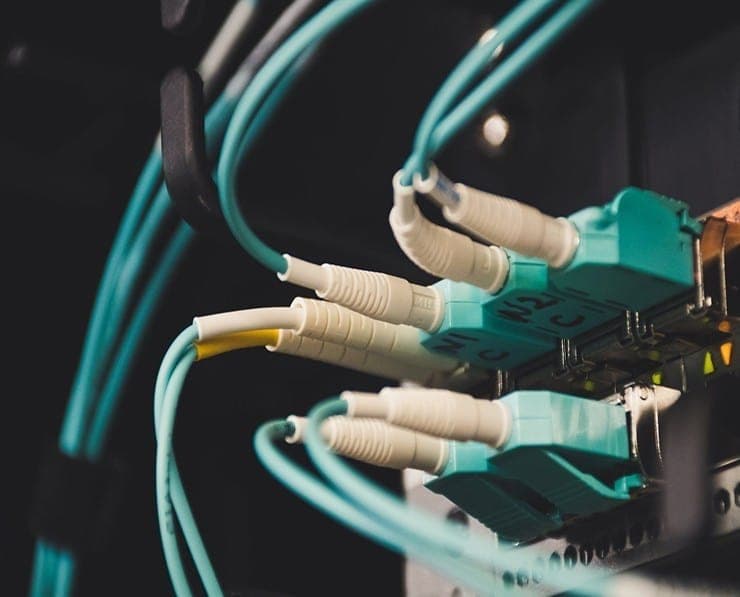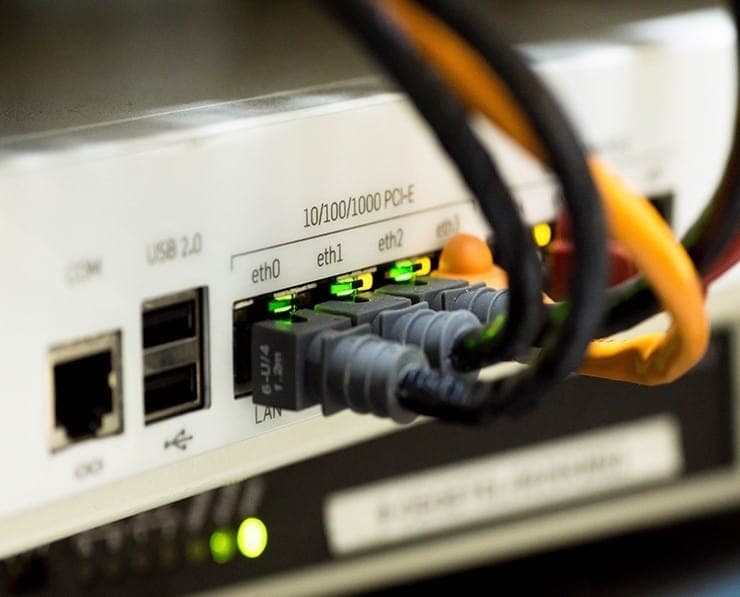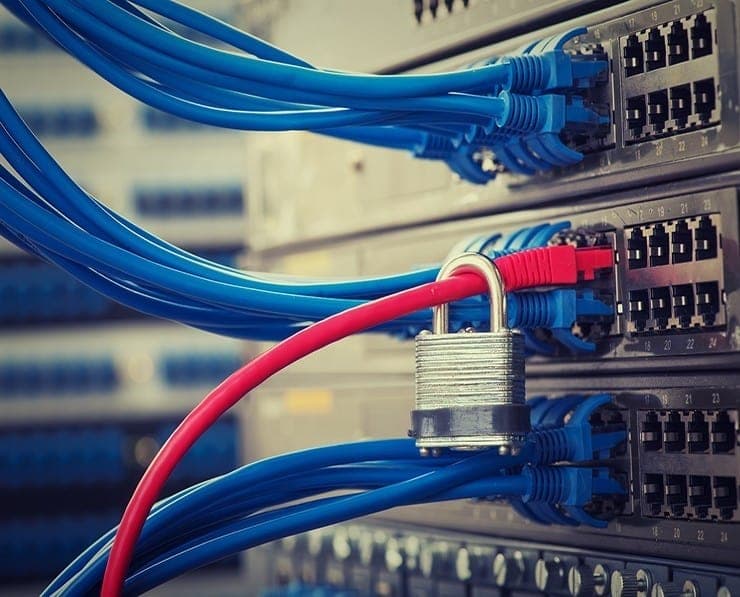Student Feedback
200-125: Cisco Certified Network Associate Certification Video Training Course Outline
Introduction to the CCNA 200-125...
Introduction to TCP/IP Networking
The Breakdown to the OSI Model
Introduction to the CCNA 200-125 Composite Certification
200-125: Cisco Certified Network Associate Certification Video Training Course Info
Cisco Certified Network Associate 200-125: Full Exam Prep Course
Complete CCNA R&S 200-125 Prep: From Networking Fundamentals to Advanced Skills
Description
The CCNA 200-301 course is designed to provide a comprehensive foundation in networking, enabling students to gain the knowledge and practical skills required to achieve Cisco Certified Network Associate certification. This course focuses on routing and switching, IP connectivity, automation, and network security principles. Students will engage in a structured learning experience, including theory, hands-on labs, and practice exams, all aligned with Cisco's official syllabus. By the end of this course, participants will be fully prepared to confidently approach the CCNA 200-301 exam and apply networking skills in real-world environments.
The course begins with an introduction to networking fundamentals, gradually progressing to complex topics such as VLANs, inter-VLAN routing, IP addressing, subnetting, and network automation. Students will learn to configure and troubleshoot routers and switches, manage network devices, and implement security measures. In addition, the course emphasizes the use of Cisco Packet Tracer and other simulation tools to provide practical, lab-based experience.
CCNA 200-301 also includes the latest networking trends and technologies, such as wireless connectivity, cloud-based network management, and the application of artificial intelligence in network monitoring and optimization. This ensures that students are not only prepared for the certification exam but also equipped with the knowledge necessary for modern networking environments. Students will gain the skills to design, implement, and maintain scalable and secure networks, making them highly valuable in professional IT roles.
The course employs a mix of instructional methods, including detailed video tutorials, guided exercises, and practice tests. Each topic is broken down into manageable modules with clear explanations to facilitate understanding. Detailed practice questions with explanations are provided to help students master the material and test their knowledge before attempting the official exam. By combining theoretical understanding with hands-on practice, students will develop the confidence needed to pass the CCNA 200-301 exam on the first attempt.
What you will learn from this course
• Master networking fundamentals, including OSI and TCP/IP models, network topologies, and protocols
• Configure and troubleshoot Cisco routers and switches for LAN and WAN environments
• Implement IP addressing and subnetting strategies for efficient network design
• Understand VLANs, inter-VLAN routing, and Layer 2 and Layer 3 network operations
• Apply network security principles, including ACLs, port security, and firewall configuration
• Utilize Cisco Packet Tracer and other simulation tools for practical lab exercises
• Understand wireless networking concepts, cloud management, and SDN architecture
• Explore automation concepts using Cisco tools, APIs, and Terraform
• Prepare for the CCNA 200-301 exam with practice tests and exam-focused study strategies
• Analyze network performance and troubleshoot common connectivity and configuration issues
Learning Objectives
• Build a solid foundation in networking concepts and Cisco device configuration
• Gain proficiency in configuring and managing routers and switches in enterprise environments
• Develop problem-solving and troubleshooting skills for real-world networking challenges
• Understand network automation, AI applications, and modern network management tools
• Achieve CCNA 200-301 certification by mastering exam topics and practice tests
• Prepare for professional networking roles and career advancement in IT and cybersecurity
• Learn to design scalable, secure, and reliable networks using best practices and industry standards
Target Audience
• IT students and networking beginners aiming to start a career in networking
• Network administrators and engineers seeking CCNA certification
• Professionals transitioning into networking roles from other IT domains
• Individuals interested in cloud networking, network automation, and cybersecurity
• Those preparing for CCNA 200-301 certification with limited practical experience
• Professionals looking to validate their networking knowledge with a recognized Cisco certification
Requirements
• Access to a computer with internet connectivity for online labs and tutorials
• Cisco Packet Tracer or similar network simulation software for practical exercises
• Basic understanding of computer operations and familiarity with IT terminology
• Commitment to completing the course modules and practice tests for exam readiness
• Willingness to learn and apply networking concepts in practical scenarios
Prerequisites
• No prior professional networking experience is required
• Basic knowledge of computer systems, operating systems, and IP concepts is helpful
• Familiarity with network devices such as routers, switches, and firewalls is a plus but not mandatory
• Understanding of basic IT concepts, such as client-server architecture and LAN/WAN differences, will support learning
• A willingness to engage in hands-on practice and simulation exercises for deeper understanding
Course Overview
The CCNA 200-301 course begins by introducing networking basics, including the role of networks in modern IT environments and an overview of the OSI and TCP/IP models. Students will learn about network devices, their functions, and how data flows across a network. The course emphasizes practical skills, starting with basic device configuration, IP addressing, and subnetting. Students will gain hands-on experience by configuring routers and switches, applying VLANs, and implementing inter-VLAN routing.
As the course progresses, students will explore advanced topics such as network automation, cloud network management, wireless connectivity, and network security. This section introduces AI and machine learning applications in network monitoring, configuration automation, and performance analysis. Students will also learn about server virtualization, containers, VRFs, and APIs for network management.
In addition to technical skills, the course provides strategies for effective exam preparation. Students will engage in practice tests with timed conditions, detailed explanations, and performance-based lab exercises. These practice sessions are designed to familiarize students with the exam format, identify areas of improvement, and build confidence. By combining theory, practice, and exam-focused study methods, the course ensures students are fully prepared for CCNA 200-301 certification.
Course Modules / Sections
The CCNA 200-301 course is structured into comprehensive modules designed to provide step-by-step learning for students at all levels. Each module focuses on building essential networking skills while gradually progressing to more complex concepts. The modules are designed to balance theoretical knowledge with practical, hands-on exercises, ensuring students gain real-world experience in configuring, managing, and troubleshooting networks.
Module 1: Introduction to Networking Fundamentals
This module covers the core concepts of networking, including the OSI and TCP/IP models, network topologies, and protocols. Students learn how data flows across a network, the function of key networking devices, and the role of IP addressing. This foundation is crucial for understanding subsequent modules and for preparing for configuration and troubleshooting tasks.
Module 2: Cisco Devices and Initial Configuration
Students gain knowledge of Cisco routers and switches, including hardware components, interface types, and device roles. This module covers initial device setup, configuration commands, and connectivity verification. Emphasis is placed on understanding the command-line interface, managing device configurations, and implementing basic network security.
Module 3: IP Addressing and Subnetting
This module provides a detailed understanding of IPv4 and IPv6 addressing, subnetting, and network segmentation. Students learn to calculate subnets, assign IP addresses to devices, and implement efficient addressing schemes for small and large networks. Subnetting exercises and practical labs reinforce these concepts to ensure mastery.
Module 4: VLANs and Inter-VLAN Routing
VLAN configuration and segmentation are critical components of modern network design. This module covers VLAN creation, assignment, trunking, and inter-VLAN routing. Students practice implementing VLANs on switches, configuring routing between VLANs, and verifying connectivity using various network commands.
Module 5: Routing Protocols and IP Connectivity
Students explore static and dynamic routing, including RIP, OSPF, and EIGRP. This module teaches how to configure routers for network connectivity, troubleshoot routing issues, and optimize network paths. Emphasis is placed on understanding routing tables, administrative distance, and route summarization for scalable networks.
Module 6: Network Security and Access Control
Network security is a critical component of the CCNA exam and professional networking. This module covers access control lists, port security, firewall configuration, and secure device management. Students learn to implement security policies, prevent unauthorized access, and protect network resources.
Module 7: Wireless Networking and Cloud Integration
With the rise of wireless connectivity and cloud services, this module introduces Wi-Fi networks, access point configuration, and cloud-based network management. Students gain familiarity with wireless standards, SSID configuration, and managing cloud networks for enterprise environments.
Module 8: Network Automation and Programmability
Modern networks increasingly rely on automation for efficiency and accuracy. This module covers the fundamentals of network automation, API usage, Terraform, and scripting for network tasks. Students learn to implement automated configurations, monitor networks programmatically, and apply best practices in network management.
Module 9: Performance-Based Labs and Practice Tests
Hands-on experience is critical for CCNA success. This module includes performance-based labs and timed practice tests. Students simulate real-world scenarios, troubleshoot network issues, and test their knowledge against exam-like questions. Detailed explanations reinforce learning and improve exam readiness.
Module 10: Exam Preparation and Review
The final module focuses on consolidating knowledge and preparing students for the CCNA 200-301 exam. Strategies for effective study, test-taking techniques, and areas of focus for the exam are provided. Students review key topics, practice high-difficulty questions, and assess their readiness for certification.
Key Topics Covered
The CCNA 200-301 course covers a wide range of topics designed to ensure students are fully prepared for certification and professional networking roles.
Network Fundamentals
Understanding the OSI and TCP/IP models, network topologies, cabling types, and devices is the first step in building a solid networking foundation. Students learn how devices communicate, the purpose of each protocol layer, and how to troubleshoot basic connectivity issues.
Cisco Device Configuration
Students learn to configure routers and switches using the command-line interface. Topics include interface configuration, device initialization, backup and restore of configurations, and verifying device functionality. These skills ensure that students can manage devices in real enterprise networks.
IP Addressing and Subnetting
Students master IPv4 and IPv6 addressing, subnet calculation, and efficient address allocation. The course emphasizes practical exercises, including assigning addresses, subnet planning, and implementing networks of varying sizes.
VLANs and Inter-VLAN Routing
VLAN concepts, trunking, and routing between VLANs are explained in depth. Students gain hands-on experience configuring VLANs on switches, enabling routing on routers, and verifying network connectivity between different VLANs.
Routing Protocols and IP Connectivity
Static routing and dynamic routing protocols such as RIP, OSPF, and EIGRP are covered. Students learn to configure routers, understand routing tables, troubleshoot routing issues, and implement route summarization for scalable networks.
Network Security
Network security topics include ACLs, port security, firewall rules, device hardening, and securing administrative access. Students learn to apply security best practices to protect networks against unauthorized access and potential threats.
Wireless Networking and Cloud Services
This topic introduces wireless networking concepts, access point configuration, wireless security, and cloud network management. Students gain understanding of modern network deployments that rely on Wi-Fi and cloud-based network monitoring.
Network Automation
Automation topics include scripting, APIs, Terraform, and programmatic network management. Students learn how automation can improve efficiency, reduce errors, and provide scalable solutions for enterprise networks.
Performance-Based Labs
Practical labs simulate real-world scenarios, allowing students to configure, monitor, and troubleshoot networks. These labs enhance problem-solving skills and help students gain confidence in their abilities to manage complex network environments.
Exam Preparation
Review of all key topics, practice exams, and exam-taking strategies help students assess their readiness. The course emphasizes understanding question patterns, time management, and effective study techniques.
Teaching Methodology
The CCNA 200-301 course employs a blended teaching methodology that combines theory, practical exercises, and performance-based assessments to ensure comprehensive learning. Instruction is structured to gradually increase in complexity, enabling students to build foundational knowledge before moving on to advanced topics.
Video Tutorials
Step-by-step video tutorials guide students through concepts, configurations, and troubleshooting exercises. Visual explanations reinforce theoretical knowledge and provide clear demonstrations of commands and network behaviors.
Hands-On Labs
Practical lab exercises are integrated throughout the course. Students configure routers, switches, VLANs, IP addressing, and routing protocols in simulated environments using tools such as Cisco Packet Tracer. Hands-on labs develop practical skills and reinforce learning.
Interactive Simulations
Simulated network environments allow students to practice network operations without the need for physical hardware. These simulations replicate real-world scenarios, enabling students to troubleshoot and resolve network issues effectively.
Practice Tests
Timed practice tests with detailed explanations help students assess their understanding of topics. Practice tests are designed to match the format and difficulty of the CCNA 200-301 exam, providing valuable exam preparation and confidence-building.
Instructor Support
The course provides expert guidance from experienced Cisco-certified instructors. Instructors offer clarifications, demonstrate best practices, and provide feedback on student progress. Personalized mentorship ensures students stay on track and achieve their learning goals.
Self-Paced Learning
Students can progress through the course at their own pace, revisiting modules as needed. The flexible structure allows learners to balance study with professional or personal commitments, ensuring mastery of each topic before moving forward.
Study Resources
Additional resources, including articles, cheat sheets, and reference guides, support the learning process. These materials provide supplementary explanations and real-world examples to deepen understanding and reinforce practical skills.
Assessment & Evaluation
Assessment in the CCNA 200-301 course is designed to measure both theoretical knowledge and practical skills. Students are evaluated continuously through quizzes, lab exercises, and practice tests to ensure comprehension and readiness for the certification exam.
Quizzes and Module Tests
Each module includes quizzes to test understanding of key concepts. These quizzes provide immediate feedback, highlight areas for improvement, and reinforce learning. Students can repeat quizzes to ensure mastery before progressing to subsequent modules.
Hands-On Lab Evaluation
Performance-based labs simulate real networking tasks, allowing students to demonstrate their ability to configure devices, implement routing and VLANs, and troubleshoot network issues. Lab evaluations assess practical competence and problem-solving skills.
Practice Exams
Timed practice exams reflect the format and difficulty of the official CCNA 200-301 exam. These exams help students manage time, understand question patterns, and gain confidence. Detailed explanations of correct answers ensure students learn from mistakes.
Progress Tracking
Students’ progress is tracked through completion of modules, quizzes, labs, and practice exams. Performance metrics identify strengths and weaknesses, enabling focused study and improvement in weaker areas.
Final Assessment
A comprehensive assessment at the end of the course evaluates overall readiness. Students are tested on all key topics, including networking fundamentals, device configuration, IP addressing, VLANs, routing protocols, security, wireless networking, and automation. Successful completion demonstrates mastery of the material and readiness for the CCNA 200-301 exam.
Benefits of the Course
The CCNA 200-301 course provides numerous benefits for students and professionals seeking to advance their careers in networking and IT. By completing this course, students gain a comprehensive understanding of networking concepts, hands-on experience with Cisco devices, and the skills necessary to pass the CCNA certification exam. One of the primary benefits is gaining proficiency in configuring and troubleshooting routers and switches in enterprise environments. This practical knowledge prepares students for real-world networking challenges and enhances employability in IT and networking roles.
Another key benefit is the structured learning approach. The course is designed to gradually build knowledge, starting from networking fundamentals and progressing to complex topics such as network security, VLANs, inter-VLAN routing, and automation. This ensures that students develop a strong foundation while acquiring advanced skills needed for professional success. The inclusion of performance-based labs and simulation exercises allows students to practice real-world scenarios, increasing confidence and competence.
The course also emphasizes exam readiness. With over 300 practice questions, detailed explanations, and timed practice tests, students are fully prepared to approach the CCNA 200-301 exam with confidence. By familiarizing themselves with the exam structure and question patterns, students can minimize surprises on exam day.
Career growth is another significant benefit. CCNA certification is widely recognized and valued by employers globally. Professionals who complete this course demonstrate a commitment to learning, technical competence, and readiness for networking roles. This can open doors to positions such as network engineer, network administrator, systems engineer, and IT support specialist. Additionally, the course introduces modern networking trends, including cloud management, wireless connectivity, and network automation, ensuring students are equipped for current and future technologies.
Students also benefit from access to CISCONET Training Solutions’ study tools, articles, and online resources. These supplemental materials reinforce learning, provide additional practice, and help students deepen their understanding of complex concepts. Personalized guidance from experienced instructors further supports students throughout the learning journey.
Overall, this course offers a blend of theoretical knowledge, practical experience, exam preparation, and career-oriented skills, making it a comprehensive pathway to CCNA certification and professional growth.
Course Duration
The CCNA 200-301 course is designed to provide an in-depth learning experience while allowing flexibility for students to progress at their own pace. The total duration of the course is approximately 8 to 12 weeks, depending on the learning speed and the time devoted to practice exercises and labs. Each module is structured to provide focused learning sessions, with an estimated 2 to 3 hours of instruction per module.
Students are encouraged to spend additional time practicing configuration tasks, performing lab exercises, and completing practice tests. Hands-on practice is essential for mastering network device configuration, troubleshooting, and understanding routing and switching concepts. Performance-based labs and simulations should be repeated until students gain confidence and efficiency in executing network tasks.
The course schedule can be adjusted based on individual needs. Beginners in networking may take a slightly longer duration to fully grasp fundamental concepts, while students with prior experience can progress more quickly through the material. Flexibility in the course duration allows learners to balance professional and personal commitments while ensuring thorough understanding of each topic.
Timed practice tests and review sessions are integrated throughout the course to track progress and ensure readiness for the CCNA 200-301 exam. Students are recommended to dedicate at least 4 to 5 hours per week for study and practice to maintain a steady learning pace and achieve optimal results.
The course duration is designed to provide ample time for both theoretical learning and practical application. By the end of the course, students will have gained the knowledge, skills, and confidence needed to pass the CCNA 200-301 exam and excel in professional networking roles.
Tools & Resources Required
To maximize the learning experience in the CCNA 200-301 course, students will need access to certain tools and resources. These tools enable hands-on practice, lab exercises, and simulation of real-world networking scenarios.
Cisco Packet Tracer is a key tool used in the course for network simulation. It allows students to configure routers, switches, VLANs, and routing protocols in a virtual environment. Packet Tracer provides a safe and flexible platform to practice configurations and troubleshoot network issues without the need for physical hardware.
For students seeking advanced practice, access to physical Cisco routers and switches is beneficial. Hands-on experience with real devices enhances understanding of network operations, device interfaces, and command-line configurations. While not mandatory, using physical equipment complements virtual labs and provides a deeper practical experience.
Additional resources include online study materials, including articles, cheat sheets, and configuration guides provided by CISCONET Training Solutions. These resources help students reinforce theoretical knowledge, understand complex concepts, and follow best practices in network configuration and troubleshooting.
Students will also benefit from access to practice exams with detailed explanations. These exams are designed to mimic the CCNA 200-301 exam format and difficulty level, providing a realistic assessment of knowledge and skills. Practice exams help identify areas for improvement and allow students to focus on weak topics before attempting the official certification exam.
A computer or laptop with stable internet connectivity is required to access online course content, simulation tools, and study resources. Basic familiarity with computer operations and the ability to navigate software applications are necessary for effective participation in the course.
Optional tools for advanced learners include network monitoring software, cloud network management platforms, and automation scripting tools such as Terraform and APIs. These tools help students explore modern networking trends, understand network programmability, and gain skills in automation that are increasingly relevant in enterprise environments.
By leveraging these tools and resources, students can gain comprehensive knowledge, practical experience, and the confidence required to succeed in the CCNA 200-301 exam and in professional networking roles.
Career Opportunities
Completing the CCNA 200-301 course opens a wide range of career opportunities for networking professionals. Cisco certification is recognized globally and highly valued by employers, making CCNA-certified individuals sought after in IT and networking industries. One of the primary career paths is becoming a network engineer. Network engineers design, implement, and manage enterprise networks, ensuring secure and efficient communication between devices and systems.
Network administrators are another key role for CCNA-certified professionals. They are responsible for maintaining network performance, configuring network hardware, monitoring connectivity, and troubleshooting issues. The skills gained in this course, including VLAN configuration, routing protocols, IP addressing, and network security, equip students to excel in these positions.
Security roles also become accessible after completing the course. With knowledge of access control, firewall configuration, and secure device management, students can work as network security specialists or IT security analysts, protecting organizations from unauthorized access and cyber threats.
Wireless networking has become a critical component in modern IT infrastructure. CCNA-certified professionals can pursue roles in wireless network administration, managing Wi-Fi networks, configuring access points, and integrating cloud-based network management solutions.
Cloud networking is an emerging area where CCNA certification provides a competitive advantage. Organizations increasingly adopt cloud solutions and SDN (Software Defined Networking) architectures. Professionals with knowledge of cloud network management, virtualization, and network automation can work as cloud network engineers or infrastructure specialists.
Automation and programmability skills acquired in the course also create opportunities in network automation roles. Using APIs, scripting, and tools like Terraform, CCNA-certified professionals can streamline network operations, configure devices automatically, and monitor network performance programmatically. This skill set is highly valuable in modern IT environments.
Other potential career paths include systems engineer, IT support specialist, network analyst, and technical consultant. Each role leverages the foundational and advanced networking knowledge provided by the CCNA 200-301 course. Professionals can also pursue further certifications, such as Cisco CCNP, cybersecurity credentials, or cloud networking certifications, to enhance career growth and specialization.
By completing this course, students not only prepare for the CCNA certification exam but also acquire practical skills that translate directly into high-demand professional roles. Employers value candidates who can demonstrate both theoretical understanding and hands-on expertise in networking, making this course an investment in long-term career success.
The CCNA 200-301 course provides a comprehensive pathway to mastering networking concepts, configuring and managing Cisco devices, and achieving industry-recognized certification. Through a structured curriculum, students gain a thorough understanding of networking fundamentals, IP addressing, routing, VLANs, network security, wireless technologies, cloud management, and automation.
The course emphasizes hands-on learning, offering practical lab exercises, performance-based simulations, and practice exams designed to mirror the actual CCNA exam. This combination of theory and practice ensures students are well-prepared for real-world network challenges and professional responsibilities.
CCNA certification not only validates technical knowledge but also demonstrates commitment to professional development. The skills gained from this course equip students to excel in networking roles, pursue advanced certifications, and stay current with evolving technologies in IT and networking domains.
Whether students are beginners seeking a career in networking or professionals aiming to enhance their expertise, the CCNA 200-301 course provides a clear and effective path to success. The course content aligns with Cisco’s latest syllabus, incorporating emerging technologies, security practices, and automation trends to prepare learners for modern networking environments.
Upon completion, students will have gained confidence, competence, and practical skills, ensuring they are ready to tackle the CCNA certification exam and apply their knowledge in professional settings. The course’s comprehensive approach, expert guidance, and practical focus make it an ideal choice for anyone serious about advancing their networking career.
Enroll Today
Take the first step toward achieving Cisco CCNA certification and advancing your networking career by enrolling in the CCNA 200-301 course today. Access comprehensive learning modules, hands-on labs, practice exams, and expert guidance designed to ensure your success.
By enrolling, you gain access to a complete set of study resources, including detailed tutorials, lab exercises, practice questions, and exam preparation materials. Develop your skills in routing, switching, network security, wireless technologies, cloud management, and automation while following a structured curriculum aligned with Cisco’s official syllabus.
Invest in your professional growth and future opportunities by gaining industry-recognized certification that opens doors to high-demand networking roles worldwide. Begin your journey toward becoming a certified Cisco network associate and take control of your career trajectory.
Enroll today to start learning, practicing, and preparing to pass the CCNA 200-301 exam on your first attempt and unlock exciting career opportunities in networking, IT, and technology.













